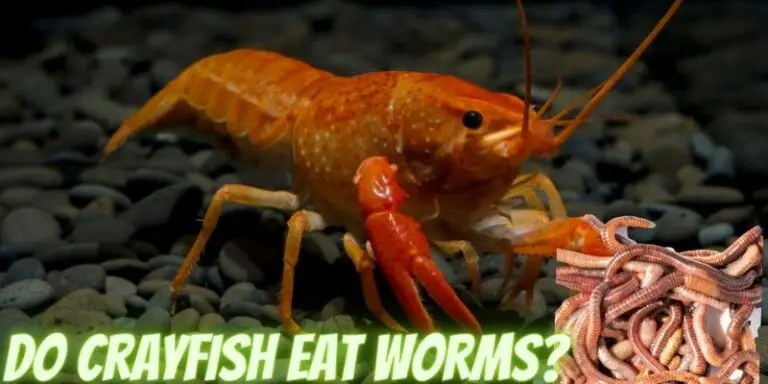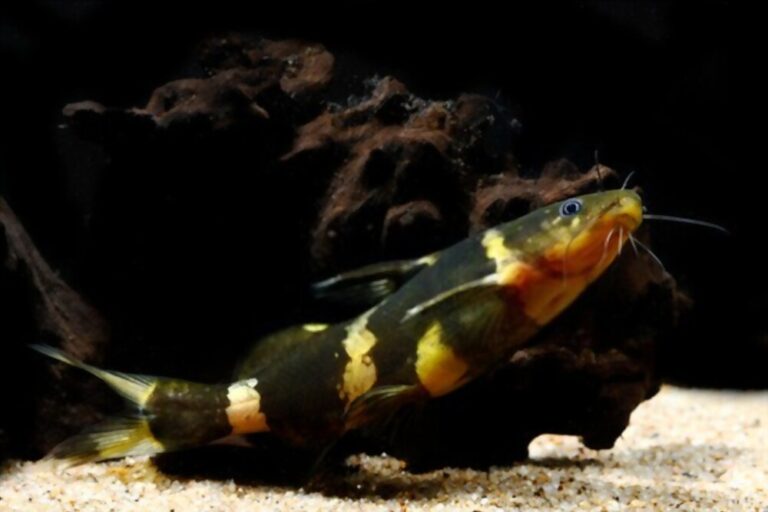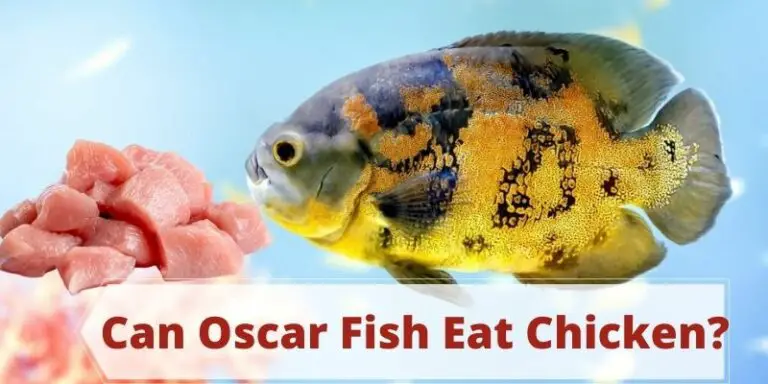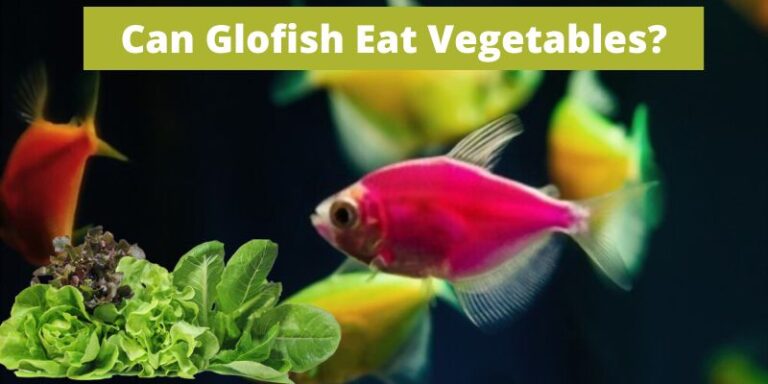What Do German Blue Rams Eat? (Foods & Feeding Tips)
Caring for german blue ram fish is essential to keep them alive and healthy, and feeding them suitable foods is the main part of the care. So what do german blue rams eat?
German blue ram fish eat pellets, daphnia, worms, shrimps, flakes, vegetables, insects, and other tiny invertebrates. Feeding these foods will provide them required nutrition.
German Blue Rams Eating Behavior
As omnivores, German blue ram fish eat both meat and plants. They consume floating plant matter, small invertebrates, and insects in the wild.
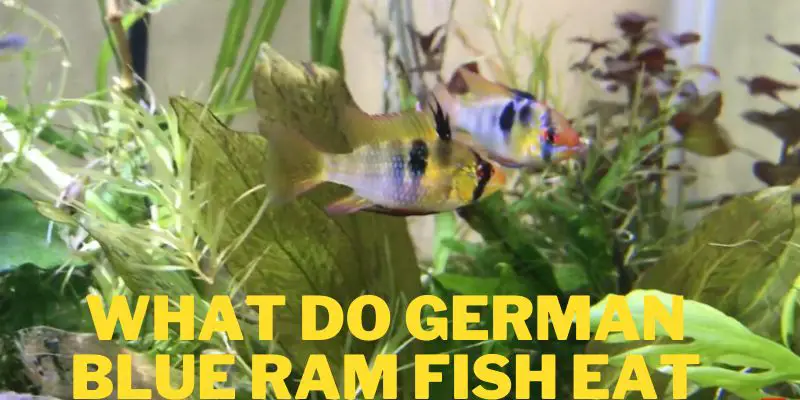
Transferring from a wild to a small tank can be quite challenging for them. They may become nervous and refuse to eat when adjusting to a new tank.
This is typical behavior, and once they’ve adjusted to their new environment, they normally start eating again.
Golden Ram eats plants, different types of algae, and small creatures when living in the natural. When kept in an aquarium, they need a balanced diet that nearly resembles this.
You can try enticing them with live mosquito larvae or other appetizing food to get them to consume.
When they start eating consistently, you can give them 2 to 5 tiny pinches of food each day. The best way to preserve the quality of your tank water and keep your fish healthy is to feed them a varied diet that includes pellets, flakes, veggies, and plants.
What Do German Blue Rams Eat In The Wild?
German blue rams are omnivores and need a balanced diet that includes meat and vegetables.
German blue ram fish eat plants, insects, and other tiny invertebrates in their natural habitat. In the wild, they spend a lot of their time searching the river bottom for food.
They dig through the bottom in search of the bottom-dwelling species they eat. Although German blue rams prefer to stay near the water’s surface, they will occasionally swim to the top.
They start looking for larvae, insects, or floating plants here. It will be simple for them to eat little nibbles of algae if they come across any along the way to keep them moving.
On the other hand, they spit out the undesirable stuff by their mouths and gills after eating big servings of the substrate while looking for anything tasty.
How To Feed German Blue Rams?
To provide German Blue Rams with a fully diverse and balanced diet, you need to offer them a variety of foods.
After settling down in the tank, you may give German Blue Rams a few pinches of food daily. For that, you can modify the wild diet of the German blue ram in their tank by introducing pellets, flakes, plants, and vegetables to them.
Rams rarely go to the surface for anything, including food, as they prefer to stay at the bottom to the middle of the water.
Getting them to eat flake or pellet foods can take some time and patience. Before adding the flakes or pellets to the tank, try soaking them in a cup of tank water. In this manner, they will descend directly to their feeding area.
For protein-based food, brine shrimp, cyclops, and bloodworms are suitable as live and frozen options.
In addition, the fish’s color is enhanced by live and frozen foods. You can drop some mosquito larvae, too, for them to eat.
The German blue ram’s mouth can accommodate food that is small enough. So, feed them according to that.
Moreover, it’s also crucial to note that you shouldn’t add the food to the tank all at once; rather, add a small amount a few times a day to keep the water clean.
How Often & How Much To Feed German Blue Rams?
Because of their size, it is recommended to feed rams two to three small portions per day rather than one large meal portion. This will guarantee that they receive the proper amount of food without overfeeding them at one time.
However, sometimes due to a busy routine, it becomes difficult to be there and feed them three times. But no need to worry.
There is an automatic fish feeder that you can go to feed your fish. Moreover, Because of their small stomachs, they can only digest a small amount of food at a time.
There is no set amount that you must feed them exactly. As more fish require more food, we must figure this out for ourselves and adjust to the number of fish we have.
But the general recommendation is to give German blue rams one meal each time, but only as much as they can eat in three minutes.
To help maintain the water quality, fish keepers divide this meal into pinch-sized quantities and distribute them throughout the day.
Moreover, make sure to remove any leftover food from an aquarium, just like with any other fish species, to keep the water clean.
Best Foods To Feed German Blue Rams?
German blue rams are bottom feeders, which means that they prefer to eat directly from the substrate, which is at the bottom of the tank.
Therefore, the best foods for German Blue Rams are those that sink. Moreover, try to feed German Blue Rams a lot of live or frozen items in addition to commercial food. The best foods to feed German blue rams are the following.
- Bloodworms
- Daphnia
- Brine Shrimp
- Cyclops
- Mysis shrimp
- Mosquito larvae
- Sinking pellets
- Worms
The items on the above list must not be consumed during each feeding. It’s advisable to switch up their diet and ensure fish get vegetables and pellets. You can supplement their diet with algae wafers.
Do German Blue Rams Eat Shrimp?
Yes, as many shrimp as a German Blue Ram can fit in their mouths. Since shrimp are an excellent supplement to their diet of them, many people put live shrimp in aquariums so that the fish can eat them.
As a result, the likelihood is that if your German blue rams see a small enough shrimp circling the substrate, german blue rams will eat those shrimps quickly.
Moreover, baby and juvenile Red Cherry Shrimp and Amano Shrimp are surely eaten by them, although adults may not.
Do German Blue Rams Eat Algae?
Yes, they will eat algae, but they prefer meaty foods like brine shrimp and sinking pellets. Moreover, German blue rams will try to eat any available algae if their diet is lacking in nutrition or amount.
Here are some typical types of algae that your Bolivian rams might be consuming, such as Hair algae, Brown algae, Black beard algae, and Detritus algae.
The appetite of German blue rams is voracious. They will try to absorb or vomit out any remaining material that is provided by the substrate.
They will eat any debris algae that they come across. This implies that an omnivorous fish acquires its dietary needs from vegetables or plants that can be replaced or substituted by algae.
For instance, if you feed them boiling cucumbers, they won’t try to pull up plants or look for algae.
Do German Blue Rams Eat Plants?
If given the proper nutrition, aquarium plants encourage the growth of algae and provide fish a sense of their natural habitat by allowing them to hide and play.
The fact that German blue rams are omnivores means that they are all technically able to eat them, but some fish keepers have observed this.
This implies that they attempt to get the nutrients they need from other sources. However, others notice them nibbling and tearing at aquarium plants more often. This is very clear when they show heightened hostility during the breeding season.
Do German Blue Rams Eat Fish?
German blue rams are peaceful and calm species. They won’t harm any of the fish you have.
These fish are opportunistic when it comes to food, and even very calm animals will try to eat other fish if they think they can.
If a small fish can fit into a german blue ram fish’s mouth, chances are it will end up eating them.
So, they can go for the smaller fish that they can fit in their mouth. They mostly eat bloodworms and brine shrimps.
What Do Baby Blue German rams eat?
It is difficult to feed Blue Ram fry since they tend to pick at minute animals and algae, but they will live without a special diet.
However, this will result in a low survival percentage for them. You must give the fry particular foods if you want them to live as long as possible.
Feed baby Rams substantial, nutrient-rich food in the initial days/weeks. In the beginning, the best option is powdered egg yolk, which is easily available at most supermarkets.
Although it won’t provide them with all the nutrients, they require for growth, and it will provide them with enough, at which point you can start giving them other foods.
Live vinegar eels are extremely beneficial for raising german ram fry up to adulthood. When the fry begins to mature, baby brine shrimp make a nice supper for them.
Additionally delicious are live brine shrimp! Offer cichlid flakes or pellets to the baby Rams once they are reliably eating.
Conclusion
Feeding them is a crucial part of caring, and before feeding them, you should know what foods german blue rams eat and how to feed them.
Also, the best foods mentioned in the post are also favorites of these fish. You can serve those foods by making a schedule of their diet and serving them in a proper way so that they can easily consume the foods.
